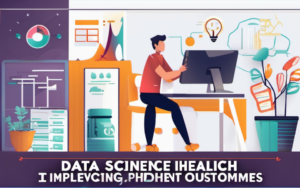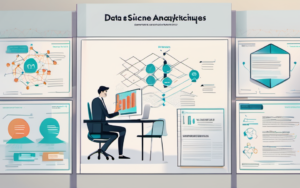Data science has become an integral part of modern businesses, driving innovation and making data-driven decisions. But how do you know if your data science projects are actually delivering value? Measuring the success of your data science projects is crucial to demonstrate their impact, justify further investment, and continuously improve your processes. This post will guide you through key aspects of evaluating data science project success, equipping you with practical strategies and insights.
Measuring the Success of Data Science Projects
Introduction
The success of a data science project goes beyond simply building a model or generating reports. It’s about achieving tangible business outcomes and demonstrating the value your project brings to the organization. To measure success effectively, you need to define clear objectives, track relevant metrics, and use a combination of quantitative and qualitative assessments.
Defining Success Metrics
Business Objectives
Start by understanding the core business objectives your data science project aims to achieve. This could involve increasing revenue, improving customer satisfaction, optimizing operational efficiency, or reducing costs. Aligning your project with these objectives ensures you measure success in the context of what matters most to your organization.
Key Performance Indicators (KPIs)
Once you’ve defined your business objectives, identify key performance indicators (KPIs) that directly measure progress towards those goals. These KPIs should be specific, measurable, achievable, relevant, and time-bound (SMART). For example, if your objective is to increase customer retention, your KPIs could include customer churn rate, average customer lifetime value, or net promoter score.
Data-Driven Evaluation
A/B Testing
A/B testing is a powerful technique for comparing the performance of different versions of your data science model or solution. By randomly assigning users to different groups and tracking their behavior, you can identify which version performs best in achieving your desired outcomes. This approach provides objective evidence to support your decisions.
Regression Analysis
Regression analysis helps you understand the relationship between different variables, such as the impact of your data science model on your KPIs. By analyzing historical data, you can identify how changes in model performance relate to changes in business outcomes. This allows you to quantify the impact of your project and validate its effectiveness.
Machine Learning Model Evaluation
For machine learning projects, evaluating model performance is crucial. Use standard metrics like accuracy, precision, recall, F1-score, and AUC to assess the model’s ability to make accurate predictions. Consider using cross-validation techniques to ensure your evaluation is robust and not influenced by overfitting.
Beyond Metrics: Qualitative Assessment
User Feedback
While quantitative metrics provide valuable insights, it’s important to consider user feedback to understand the impact of your data science project from a human perspective. Collect user feedback through surveys, interviews, or usability testing to gauge satisfaction, identify areas for improvement, and ensure your solution meets real-world needs.
Stakeholder Satisfaction
Evaluate stakeholder satisfaction by assessing their perception of the project’s value, their level of engagement, and their willingness to collaborate in the future. Gathering stakeholder feedback helps you understand their needs, address concerns, and build trust in the project’s effectiveness.
Continuous Improvement
Data science is an iterative process, and your project should constantly evolve based on feedback and new insights. Regularly review your success metrics, analyze your results, and identify opportunities for improvement. This iterative approach ensures your project remains relevant, effective, and delivers sustained value over time.
Data-Driven Decision Making
Measuring the success of your data science projects is not just about demonstrating value; it’s about empowering data-driven decision making. By understanding the impact of your projects, you can make informed choices about future investments, prioritize resources, and optimize your strategies for achieving even greater success.
The success of your data science projects is not a one-time event; it’s a continuous journey of improvement and innovation. By embracing the principles outlined in this post, you can ensure your projects deliver tangible value, drive meaningful outcomes, and contribute to the overall success of your organization. Remember, data science is not just about building models; it’s about solving real-world problems and making a positive impact.




